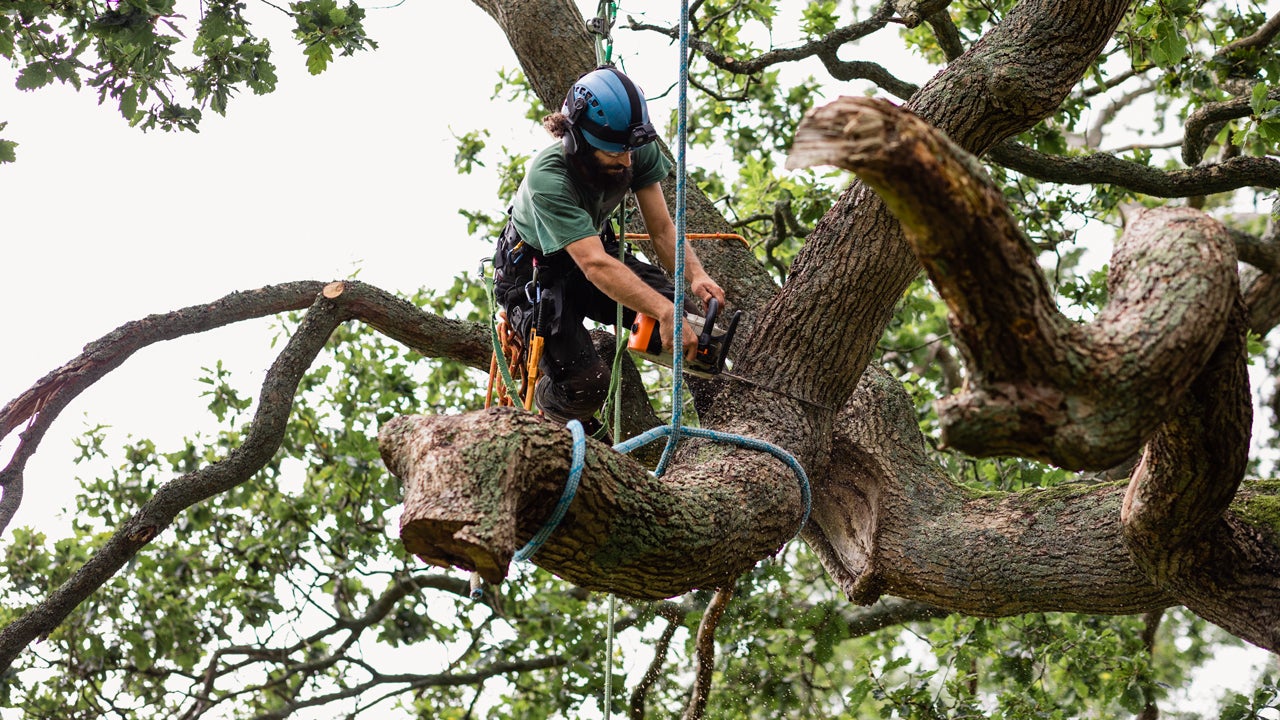Who is liable for invasive tree roots?


Dear Real Estate Adviser,
I just bought a vacant bank-owned, four-unit property and I’m in the process of rehabbing it for $130,000. Going in, I was warned the owner of the next-door apartments was a weasel. Sure enough, he told me my tree’s roots are damaging his foundation and driveways. He’s owned the building for 10 years and the tree he’s referring to is 40 years old. He said I should cut the tree back to help rectify the problem, but that chopping it down could lead to more damage as the root support would give way underground. Am I legally liable?
— Derak F.
Dear Derak,
Too bad the neighboring landlord is a “weasel,” not a beaver. He could gnaw through those extra-territorial roots that have created a gulf between you two so early in your professional relationship.
Usually not tree owner’s problem
Kidding aside, this really isn’t your problem. It is his, and his complaint seems suspiciously reinforced by the reputation that precedes him. It’s likely he made the same assertion to the previous owner who apparently didn’t think to divulge it to you under the disclosure portion on the sales contract, possibly because he wanted to hide the fact or because it had little or no merit.
Laws vary somewhat but most states say that if the roots of a homeowner’s tree damages a neighbor’s drive or home, then that’s the neighbor’s problem to deal with. However, the Virginia Supreme Court did overturn a long-term precedent there when it ruled that property owners can indeed force a neighbor to cut back roots or branches in some cases; a handful of civil suits have been successful against neighboring tree owners, too.
Timing is an issue, too
But most importantly, you came after the fact, Derak, and nearly all laws on the subject say that new property owners aren’t responsible for damage caused by trees on their land before they purchased it. Period. “If the complainant is worried about roots on his property, he can take action within his property boundaries,” explains Steve Nicholson, owner and consulting forester at Minneapolis-St. Paul-based TreeBiz. “But if he kills the neighbor’s tree, he is liable.” Thus, the complaining neighbor is free, technically, to sever the roots on his property but he would be wise to heed the forester’s caution.
Be careful
Cutting any roots within three to five times the diameter of the trunk or any root that is more than 2 inches in diameter, by the way, can greatly enhance the chance it will kill or stress a tree, inviting rot and insects. Timing is also important: Pruning roots after the spring bud-break deprives a tree of water and nutrients when it most needs them.
There’s also a chance that it wasn’t even your roots that are trespassing if there are other nearby mature trees present. Some trees can send out roots for more than 200 feet. You could contact a certified arborist for a professional opinion and offer to split the fee with the neighbor landlord if he’s really that concerned. A professional will get a sense of how close the roots are to the neighbor’s foundation, whether drastically trimming the tree will help or hurt and if the soil will become unstable (doubtful by the way) if the roots on his property die or are removed. Bluster aside, the fact that the next-door landlord has yet to take action might indicate that the problem really isn’t that significant.
But please don’t commit “arborcide” to rectify the issue. Most healthy trees are a property asset. I wish I could provide you more absolutes.
Good luck!
Ask the adviser
To ask a question of the Real Estate Adviser, go to the “Ask the Experts” page and select “Buying, selling a home” as the topic. Read more Real Estate Adviser columns and more stories about real estate.
Bankrate’s content, including the guidance of its advice-and-expert columns and this website, is intended only to assist you with financial decisions. The content is broad in scope and does not consider your personal financial situation. Bankrate recommends that you seek the advice of advisers who are fully aware of your individual circumstances before making any final decisions or implementing any financial strategy. Please remember that your use of this website is governed by Bankrate’s Terms of Use.
More On Neighbors:
You may also like

Closing costs in Kansas: Who pays for what

Will my homeowners insurance policy cover tree removal?


